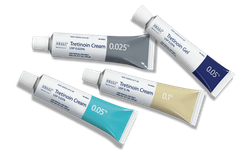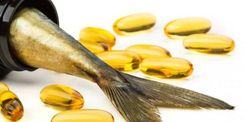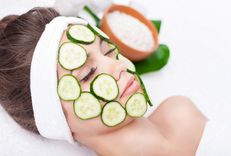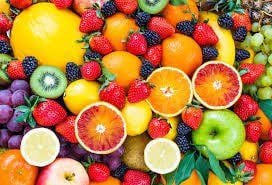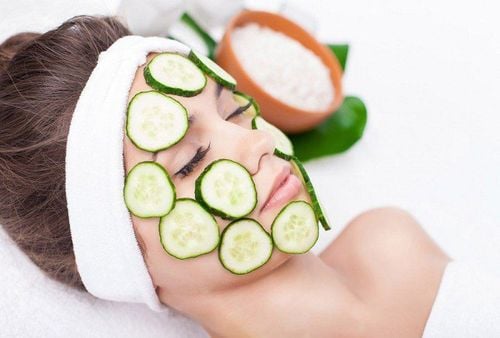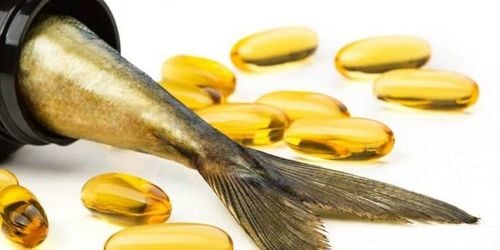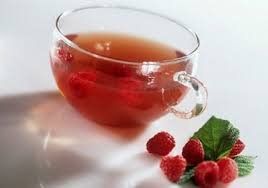Acne, inflammation, and other skin disorders frequently thrive in an oily skin environment. This type of skin requires regular care to decrease oil secretion and avoid acne. Diet also plays an important role; take the initiative to eat more foods that are good for oily acne skin. If you're curious about which meals are good for oily skin, continue reading. "What should people with oily skin eat?"Here are the top eleven foods for you.
1. Use cucumbers to hydrate your skin
Providing your skin with adequate water is critical to maintaining fresh, healthy skin. Aside from drinking plenty of water, often eating a lot of water-rich foods helps your skin become smoother and more bright.
Cucumber is a healthy food for oily, acne-prone skin that should be consumed on a daily basis. Cucumbers contain more than 95% water, which moisturizes and cools the skin. In addition, this fruit includes antioxidants with anti-inflammatory effects. Apply a cucumber mask to relieve red, inflamed acne.
2. Green veggies help manage oil levels
Green veggies like cabbage, spinach, bok choy, kale, watercress, and others are also good for skin that gets oily and acne-prone. Because of this, you should eat them every day. These vegetables are strong in fiber, water, and are free of oil. As a result, eating plenty of green vegetables will efficiently moisturize and regulate the amount of oil on your skin.
Note: The darker the green color, the better the antioxidant content, thus emphasize dark green vegetables.
3. Citrus fruits promote hydration and detoxification.
People claim that citrus fruits like oranges, tangerines, lemons, and grapefruit are beneficial for oily, acne-prone skin. They are rich in vitamin C, which aids in fighting inflammation and bacteria, managing oil, brightening the skin, and detoxifying the skin.
The natural oils in fresh oranges help hydrate the skin. Lemon and grapefruit, in particular, aid in the elimination of toxins from the body and allow the skin to breathe while increasing suppleness and shine.

4. Dark chocolate is also beneficial for oily, acne-prone skin
A dark chocolate bar typically contains 70-90% cocoa solids, cocoa butter, and sugar, all of which are beneficial for oily skin. The American Academy of Dermatology (AAD) found that eating dark chocolate lowers stress, enhances cardiovascular health, and lowers the risk of diabetes and cancer. Other components in dark chocolate, such as iron, magnesium, copper, zinc, and phosphorus, are also useful in acne prevention, oil control, and wrinkle reduction. However, you should limit your intake to 100 g per day and avoid chocolate with high sugar, milk, and fat.
5. Drinking coconut water reduces oiliness and prevents acne
Coconut water includes several electrolytes, vitamins, and minerals that can successfully reduce oiliness and prevent acne. Drinking coconut water every day not only keeps the skin hydrated, but it also helps to eliminate toxins from the body, leaving the skin feeling fresher, more supple, and smooth.
However, you should avoid drinking coconut water with sugar because it not only reduces the efficiency of hydration but also adds unnecessary calories that are bad for your health.
6. Carrots help prevent dark pigmentation on the skin.
In addition to cochinchin gourds, carrots are high in beta-carotene, an antioxidant that promotes skin health.
We've always known carrots were excellent for our eyes because of their high vitamin A. Not only that, the amount of beta-carotene in this vegetable can help manage sebum, reduce acne, and minimize pigments that create dark skin.
Carrots also offer anti-aging properties by removing free radicals, increasing collagen formation and allowing the skin to become more elastic and smooth. You can improve your attractiveness and health by eating this root vegetable or using carrot seed essential oil.
7. Bananas are beneficial for oily and acne-prone skin
Bananas include a variety of minerals, including vitamins A, B, C, and E, potassium, phosphorus, zinc, and amino acids, which serve to increase the skin's resistance. At the same time, they help manage sebum, boost collagen synthesis, and act as antioxidants, thereby restoring and fading acne scars.
The recommendation is to eat one banana per day to boost skin moisture and nourish good skin from within.

8. Avocados have a lot of antioxidants, which help make skin more elastic.
Avocados are undoubtedly one of the best foods for oily, acne-prone skin. Avocados contain several fatty acids that are beneficial to the skin to reduce the activity of the sebaceous glands. Avocados are also high in potent antioxidants like alpha carotene, beta cryptoxanthin, beta carotene, lutein, and zeaxanthin, which aid with pigmentation and skin elasticity. They also protect against cancer and the formation of blood clots in the blood vessel walls.
Avocados are also high in vital fats, which promote healthy skin and hair. It is also high in vitamin E, which protects the skin from the free radicals caused by aging and sunshine.
9. Peas can reduce inflammation
Peas not only have a great nutritional value for the body, but they also efficiently regulate oil secretion on the skin. The amino acids in peas are not turned into sugar when ingested, and it contains vitamins A, C, K, and B, as well as protein and minerals... that contribute to the skin's health and rosiness. If you have acne-prone skin, eat extra peas because they will help minimize swelling and irritation.
10. Whole grains include a lot of fiber
Wheat, oats, barley, corn, millet, buckwheat, quinoa, and brown rice are examples of whole grains, which have all three parts: bran, endosperm, and germ. The majority of these grains contain fiber, antioxidants, and beta-glucan, which have the following effects.
- Reduce cholesterol;
- Prevent constipation;
- Maintain homeostasis; and reduce sebum, which clogs pores.
- Support acne treatment.
11. Nuts repair damage
Nuts and seeds, including almonds, cashews, macadamia nuts, and walnuts, have a variety of beneficial lipids that nourish the skin. For example, omega-3 in these nuts has anti-inflammatory effects, which help treat acne lesions and reduce sebum on the skin.
They are also high in vitamin E, which protects against free radicals and slows the aging process.
In addition to a skin care routine, nutrition has a significant impact. If you continue to consume foods that are bad for acne-prone skin, your skin will generate more oil, widen pores, and develop blackheads and difficult-to-treat inflammatory acne. On the contrary, if you eat properly and incorporate more foods that are beneficial to oily, acne-prone skin, your skin will quickly become healthier, brighter, and more vibrant.
Please dial HOTLINE for more information or register for an appointment HERE. Download MyVinmec app to make appointments faster and to manage your bookings easily.
